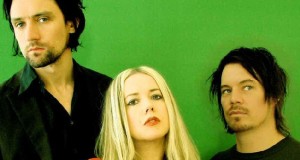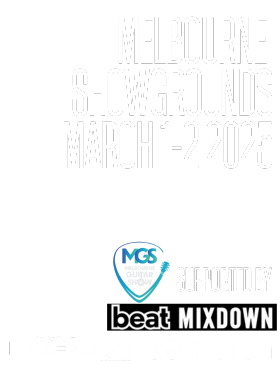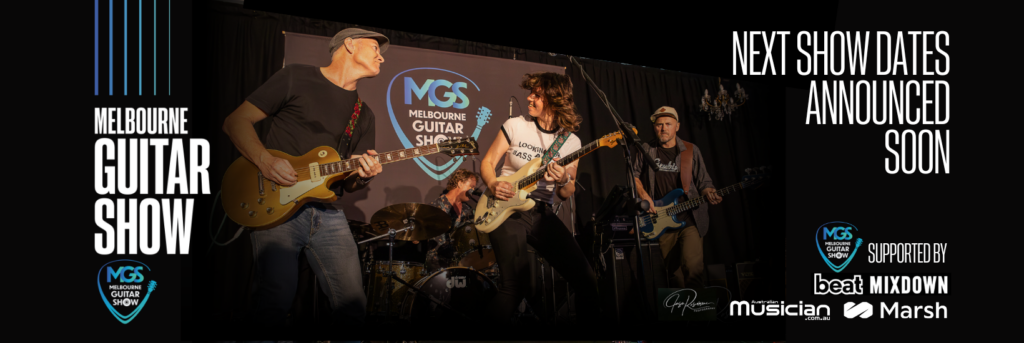SOMETHING FOR KATE’S PAUL DEMPSEY
August 29, 2006 | Author: Steve Tauschke
Having emerged from the songwriting doldrums with their new Los Angeles-recorded album Desert Lights, Something For Kate’s Paul Dempsey chats with AM’s Steve Tauschke
 So did you find the anonymity in LA helpful during your stay?
So did you find the anonymity in LA helpful during your stay?
“Yes, being in an unfamiliar place and not seeing everybody that you know all the time and not getting asked lots of questions about the band, in a sense, just helps you to feel like all that baggage isn’t there and it feels liberating. I mean we could have just been anybody in Los Angeles making our first record so it was kind of good in that way. We could just forget about our whole back catalogue and everything we’d done before and any expectations that might have been there.
To what extent did Brad Wood’s live-sounding production suit the band?
“Well, that’s how we wanted to capture these songs. Our last couple of albums had a lot of things going on in terms of arrangements, lots of strings and piano and synthesizers and mountains of backing vocals. This time we just challenged ourselves to get the message across in the simplest possible way and in the most direct way so that the emotion and the lyrics can really take the forefront and not be competing with all this other stuff. And Brad is really great at that, he doesn’t go overboard with effects and embellishments. He’s really good at just capturing great sounds. If you want one guitar to do the job of five guitars you obviously really need a fantastic guitar tone to carry it across and he’s got a really good aesthetic for stuff like that.”
Tell us about the pressure on you personally during the writing process for this album?
“It’s a trap but I just second-guessed myself basically. We often characterise it as writer’s block but in actual fact I was writing tons and tons of stuff but I just didn’t second guess myself for long enough to just settle on a lyric and recognise the worth in something. I just kept on saying ‘no, no, it’s not there yet’ and I just did that up until I lost any perspective. I just kept trapping myself which is my own ridiculous circle that I got myself into. But once I got myself out of it the songs started flowing and I started not questioning it so much.”
Was it a case of perfectionism creeping in?
“I guess so but the thing about that is in order to be a perfectionist you have to have a clear vision of what you think perfection is and I don’t think I had that. When I think of a perfectionist I think of a guy like Stanley Kubrick who obviously had this completely formed vision in his head and the perfectionism was a method of working towards that and until it was there he wasn’t satisfied. In my case, it was more just a void and all I knew was that I wasn’t that thrilled with what I was coming up with up to a certain point. So the ten tracks on this album are all those particular moments where there was no doubt or questions. They just felt right, how they should feel.
“I guess sometimes the biggest thing is perseverance. I didn’t walk away, I just stayed at it and as frustrating as it was I was determined to spend at least three hours to try to write each day. A lot of days I came up with nothing but inevitably some days I did. I did think about quitting many times because many times I thought ‘maybe I can’t do this, maybe it’s too hard’. But I kept coming back to it because I love it so much and the idea of not doing it was worse than the difficulty I was having doing it.”
So tell us about some of your favourite gear you used on the album?
“I like Fender guitars and amps, generally. I’ve got a nice 1966 Telecaster that I particularly love that I’ve had for a while. It’s a few decades old and the previous owners have just nicely worn it down and made the neck very soft and smooth and it’s just beautiful to play. I’ve got an old Tele Deluxe and a 60s Jazzmaster as well and they all sound really different and really unique and I just love the way they feel to play.
“So I’ve got those three Fenders and Gibson 335 and they’re what I use in the studio and on tour and they’re the only four guitars I used for this new album and our last couple of albums as well. I’ll also take this opportunity to give a yell to a guy in New South Wales who has been making pedals for a couple of years now and I’ve just started using them and they’re fantastic. His company is called MI Audio and I’ve paid big money for some crazy boutique pedals over the years from different parts of the world and there’s some great stuff out there but I was struck by the pedals Michael sent me. They sound really fantastic and they’re really versatile and he’s really put a lot of effort into making them.”
As a theme in this issue we’re focusing on artists’ favourite songs and song lines … can you share any meaningful examples with us?
“Bands like Augie March just continually come up with amazing stuff. Then you go back to a band like Midnight Oil, there’s no shortage of great Australian bands. But one of my favourite bands of all time is probably Fugazi and they have a lyric that’s almost a motto for me now. They have a song called Target which I imagine is about people who want to make music and how there seems to be this path or this road to that through getting a record deal and signing a contract and all that sort of stuff.
“So the song is sort of a battle-cry for doing whatever you want to do and not waiting for someone to endorse it or condone it. There’s a line in the song ‘if you want to seize the sound, you don’t need a reservation’ and that line just continually inspires me, even when I’m having trouble writing. If you love music, it doesn’t have to be ok with anybody else – you just do it. It’s bands like that and lyrics like that that can affect you so much. That song must be ten years old now but it’s almost like a motto for me to keep doing what I want to do and not worry about anybody else’s take on it.”
Desert Lights is out on SonyBMG.





